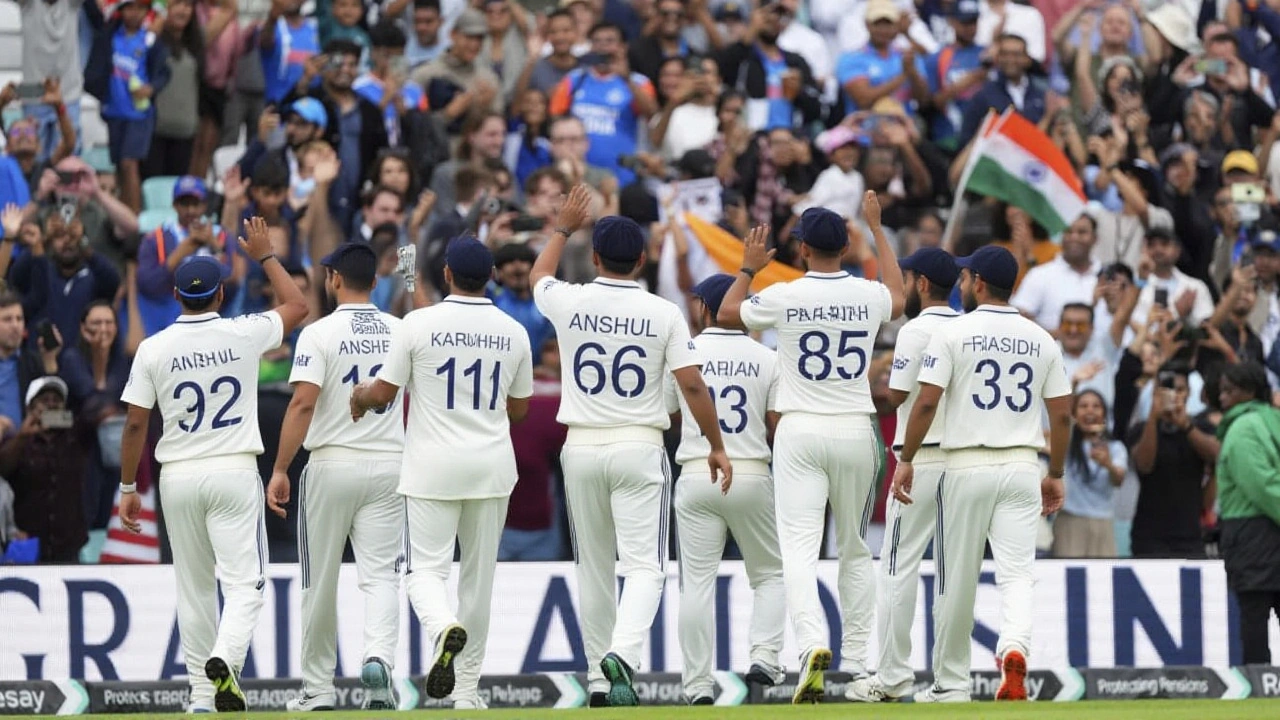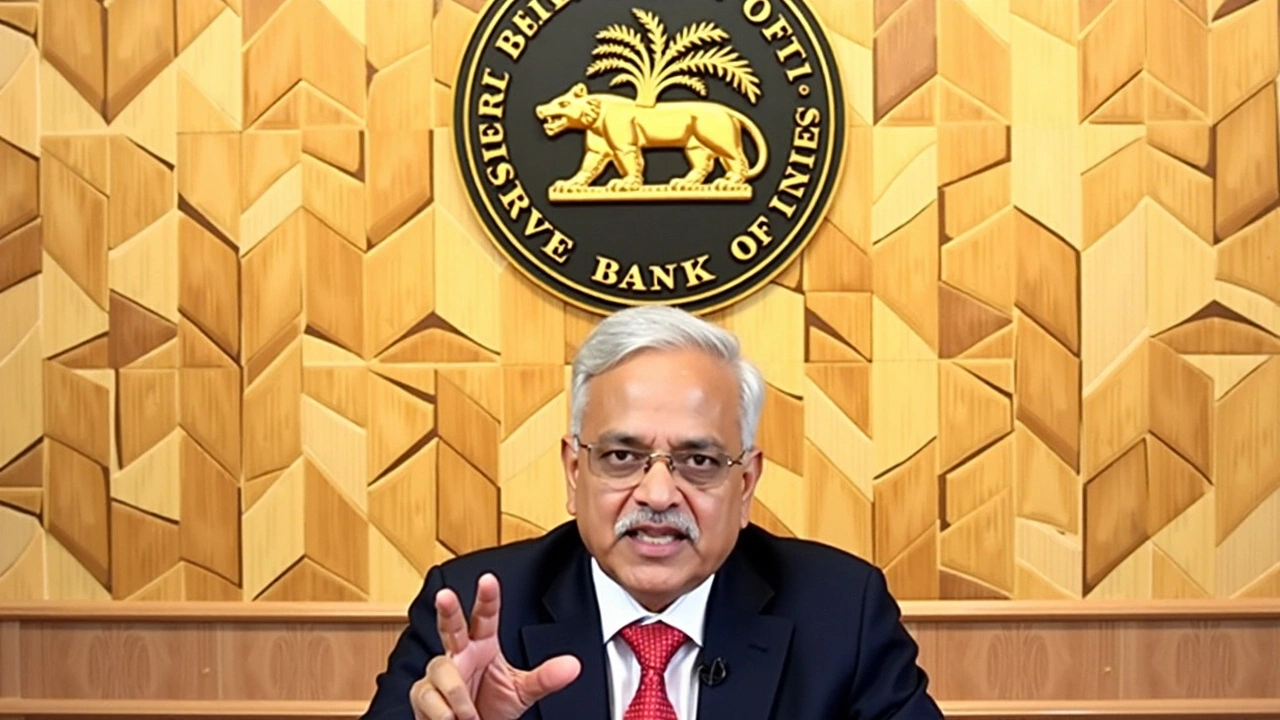The Union Cabinet of India, chaired by Prime Minister Narendra Modi, gave the green light on October 28, 2025, for the formation of the 8th Central Pay Commission — a move that will reshape the income of nearly 11.5 million people across the country. Implementation of revised salaries and pensions is expected to kick in on January 1, 2026New Delhi, marking the latest chapter in India’s decennial tradition of recalibrating government pay. Former Supreme Court judge Ranjana Prakash Desai will lead the commission, a signal that fairness and legal rigor will anchor its work. The news sent ripples through ministries, hospitals, and military barracks — where employees and retirees now dare to hope for relief from years of inflation-squeezed budgets.
What’s in the Terms of Reference?
The Union Cabinet approved the Terms of Reference (ToR), essentially the rulebook guiding the commission’s work. Drafted by the Joint Consultative Machinery (JCM) and cleared by the Ministry of Finance, the ToR spells out how the commission will assess pay structures, allowances, and pension formulas. As Manjeet Singh Patel, National President of the All India NPS Employees Federation, put it: “TOR is like a rule book — it defines what the commission can and can’t do.” That includes recalculating dearness allowance (DA), house rent allowance (HRA), and transport allowance (TA) based on a new basic pay scale. Crucially, the commission must also recommend a new formula for DA and dearness relief — the lifeline for pensioners battling rising food and fuel prices.Who Benefits, and By How Much?
Approximately 50 lakh central government employees — including armed forces personnel — and 65 lakh pensioners will see their incomes reset. That’s 11.5 million people directly affected. Early projections, cited by ClearTax and corroborated by finance ministry sources, suggest a 30 to 34 percent salary hike. The fitment factor — the multiplier applied to current basic pay — is expected to fall between 1.83 and 2.46. For context, the 7th Pay Commission used a fitment factor of 2.57, which delivered a 23.55% average raise. This time, the numbers suggest a slightly more modest but still transformative jump.Let’s put that in real terms. A clerk earning ₹25,000 per month in basic pay could see that climb to ₹32,500–₹33,500. A senior officer with ₹1,20,000 basic might jump to ₹1,56,000–₹1,68,000. And for pensioners? Their monthly pensions — many of which haven’t kept pace with inflation since 2016 — could see similar increases. “It’s not just about pay,” said a retired Air Force major in Chandigarh. “It’s about dignity. My pension hasn’t changed meaningfully in eight years. This might finally let me afford my insulin without skipping meals.”
Historical Precedent: The 7th Pay Commission’s Ripple Effect
The last time this happened — January 1, 2016 — the 7th Central Pay Commission delivered a ₹1,00,000 crore (₹1 trillion) spike in government expenditure for FY 2016–17. That money didn’t vanish. It flowed into local kirana stores, auto-rickshaw drivers, school fees, and hospital bills. Economists at the National Council of Applied Economic Research (NCAER) later found that government pay hikes boosted rural consumption by 8–10% in the following year. This time, with inflation still hovering around 5% and urban wages lagging, the economic multiplier effect could be even stronger.Unlike past commissions, the 7th Pay Commission introduced the now-familiar pay matrix — replacing archaic grade pay structures with clear, level-based pay bands. The 8th Pay Commission will likely refine this further, possibly introducing digital pay tracking and regional adjustments. But the core goal remains unchanged: to ensure that public servants aren’t left behind as the economy grows.
What Happens Next?
The commission has 18 months to deliver its report — meaning a final recommendation is due by mid-2027. But don’t expect a full rollout then. The Union Cabinet will review, tweak, and approve the findings before implementation. Ashwini Vaishnaw, Information and Broadcasting Minister, was candid: “The specific date will be decided once the interim report comes in… But mostly it should be January 1, 2026.” That’s the target. And if history is any guide, the government will stick to it.Why the urgency? Because the 7th Pay Commission’s mandate expired in 2026. Delaying the 8th would mean a gap in pay revisions — a dangerous precedent. For millions of employees, this isn’t just policy. It’s survival.
Why This Matters Beyond Paychecks
This isn’t just about salaries. It’s about trust. When the government revises pay every decade, it signals that it’s paying attention — that it recognizes the sacrifices of teachers, nurses, clerks, and soldiers. It also reflects economic confidence. After years of fiscal tightening post-pandemic, the decision to approve a major pay hike signals that the exchequer is stable enough to absorb another ₹1–1.5 lakh crore in annual expenditure.And let’s not forget the psychological impact. For the first time since 2016, government workers can plan for the future — buy a house, send kids to college, retire with dignity. That’s worth more than any spreadsheet.
Frequently Asked Questions
How will the 8th Pay Commission affect pensioners?
Pensioners — including 6.5 million defense and civilian retirees — will see their monthly pensions recalculated based on the new basic pay structure and revised fitment factor. The commission is also mandated to redesign the dearness relief formula to better offset inflation, which has eroded pension values since 2016. Many pensioners currently receive less than ₹15,000/month; this hike could push that above ₹20,000 for most.
Will allowances like HRA and DA change too?
Yes. All allowances — including HRA, DA, and TA — will be recalculated based on the new basic pay. DA, which compensates for inflation, will get a new formula to better reflect current price indices. HRA will likely be revised for urban centers like Mumbai and Delhi, where rent has surged over 40% since 2016. This means even employees in high-cost cities will get meaningful relief.
Why is the implementation date set for January 1, 2026?
January 1 is the traditional start date for fiscal adjustments in India’s public sector, aligning with the financial year. The 7th Pay Commission also took effect on January 1, 2016. Setting the same date ensures administrative consistency, allows time for payroll systems to update, and gives ministries a clean fiscal reset. Delaying it risks confusion and payroll errors.
How does this compare to past pay commissions?
The 7th Pay Commission delivered a 23.55% average raise with a fitment factor of 2.57. The 8th is projected at 30–34% with a slightly lower fitment factor (1.83–2.46), meaning the raise will be more evenly distributed across pay levels. Unlike earlier commissions, this one will focus more on equity — closing gaps between defense and civilian pay, and addressing regional disparities in cost of living.
Who exactly is on the commission?
The commission will include former Supreme Court judge Ranjana Prakash Desai as chairperson, one part-time member (likely a senior economist), and a member-secretary from the Finance Ministry. No other names have been officially announced yet, but the inclusion of a retired judge signals a focus on transparency and legal compliance — a response to past criticisms of opaque pay decisions.
Will state government employees benefit too?
Not directly. The 8th Pay Commission only covers central government employees and pensioners. But most state governments follow the central pay structure as a benchmark. States like Maharashtra, Tamil Nadu, and Uttar Pradesh typically implement similar hikes within 6–12 months. So while state workers won’t get the raise on January 1, 2026, they’re likely to see it by late 2026 or early 2027.









Nitin Srivastava
October 29, 2025 AT 08:08Finally, the state acknowledges that civil servants aren’t disposable assets. The fitment factor of 1.83–2.46? Elegant. Not the grotesque 2.57 of the 7th - this is precision engineering, not fiscal flamboyance. 🤫
Nilisha Shah
October 30, 2025 AT 11:51It’s remarkable how such a technical policy shift can restore dignity to millions. The recalibration of DA and HRA isn’t just arithmetic - it’s a recognition that urban life costs more than it did in 2016. I hope the implementation is seamless.
For pensioners, this isn’t a raise - it’s a lifeline reattached.
Kaviya A
October 31, 2025 AT 16:46omg finally someone did something real like i was about to quit my job in mumbai just to survive 😭
Supreet Grover
November 2, 2025 AT 13:14The structural alignment of the 8th CPC with the NPS framework is a critical inflection point. The recalibration of the DA formula to reflect CPI-W rather than WPI introduces a more granular, inflation-responsive mechanism - a paradigm shift from the 7th’s static indexation.
Additionally, the proposed regional HRA bands, calibrated against the 2024 Urban Cost of Living Index, represent a move toward equitable fiscal federalism.
Saurabh Jain
November 4, 2025 AT 07:40This is the kind of policy that reminds me why I still believe in institutions. For years, we’ve seen government workers treated like afterthoughts - teachers working two jobs, nurses skipping meals, retired soldiers watching their pensions vanish. This isn’t just money.
It’s a signal that someone is still listening.
Suman Sourav Prasad
November 4, 2025 AT 14:56Let’s be real - this is long overdue. The 7th Pay Commission was great, but inflation didn’t take a vacation. Rent doubled. Fuel tripled. Groceries? Don’t even get me started.
And now, with the fitment factor adjusted, it’s not just about the percentage - it’s about restoring balance. Finally, someone’s doing the math right.
Also - why is everyone so quiet about the pensioners? They’ve been waiting eight years. This is their moment too.
Nupur Anand
November 5, 2025 AT 03:11Oh please. You think this is some grand act of benevolence? It’s political theater wrapped in a spreadsheet. The government didn’t do this out of compassion - they’re terrified of the next election. 11.5 million voters? That’s not a pay commission - that’s a voter registration drive with a budget.
And don’t get me started on the ‘dignity’ nonsense. Dignity doesn’t come from a higher basic pay - it comes from respect. And the state has been stealing that since 2016.
Also - why is Ranjana Prakash Desai leading this? She’s a brilliant jurist, yes - but she’s never run a budget. This smells like virtue signaling with a pensioner’s face.
Vivek Pujari
November 5, 2025 AT 16:00Finally! The nation is waking up. This is what happens when you stop bowing to the ‘austerity’ cult. ₹1.5 lakh crore? That’s not a cost - it’s an investment in India’s backbone. Teachers. Soldiers. Nurses. Clerks. They built this country while we debated tax brackets.
And to those who say ‘we can’t afford it’ - you forgot who pays the taxes. It’s THEM. Not you.
🇮🇳💪
Ajay baindara
November 5, 2025 AT 17:2030%? Pathetic. The 7th gave 23% and everyone cried like babies. Now they’re getting 30% and acting like it’s a miracle? You people have no idea what real struggle looks like.
I’ve seen clerks in Bihar earning ₹8,000/month. This won’t touch them. This is all for the urban elite. Real reform? Start with the states. Stop pretending this is about justice.
mohd Fidz09
November 7, 2025 AT 16:08This is the moment India proves it’s not a banana republic. While the West drowns in inflation and debt, we’re upgrading our public servants with precision, dignity, and national pride.
Let the global elite tremble - India doesn’t beg for fiscal permission. We build. We rise. We pay those who hold the nation together.
8th Pay Commission: Not a policy. A declaration of sovereignty.
🇮🇳🔥
Rupesh Nandha
November 8, 2025 AT 12:52It’s interesting how this mirrors the broader rhythm of Indian governance - every ten years, we pause, re-evaluate, and realign. The 8th Pay Commission isn’t just about numbers. It’s about time. Time for pensioners to breathe. Time for teachers to stop worrying about their children’s books. Time for the system to remember that service isn’t a burden - it’s the foundation.
And yet, I wonder: will this lead to better recruitment? Will it attract talent into public service again? Or is this just a one-time correction?
Maybe the next step is not just pay - but purpose.
suraj rangankar
November 8, 2025 AT 14:45YES! This is the energy we needed! 🙌
Every teacher, every nurse, every soldier - you’re not invisible anymore. This raise? It’s not just money. It’s a high-five from the whole country.
2026 is going to be the year we start believing in progress again. Let’s make it count!
Share this with someone who needs to hear it today. You’re valued. You matter.
Nadeem Ahmad
November 9, 2025 AT 16:49Huh. So they finally did it. Guess the economy didn’t collapse after all.
Wonder if the budget will still get slashed next quarter.
Nitin Srivastava
November 10, 2025 AT 00:37Interesting how Nupur dismissed the commission as political theater - yet failed to acknowledge that even political theater, when it delivers real relief, is still theater worth watching.
Perhaps the cynicism is more dangerous than the spectacle.
Aravinda Arkaje
November 10, 2025 AT 07:42Let’s not forget - this isn’t just about salaries. It’s about legacy.
My uncle was a post office clerk. He worked 40 years. Never took a sick day. His pension? ₹12,000. He skipped meals to pay for my college.
If this hike puts ₹20,000 in his pocket - even if he’s gone - it means his sacrifice wasn’t forgotten.
Thank you, India. For remembering.